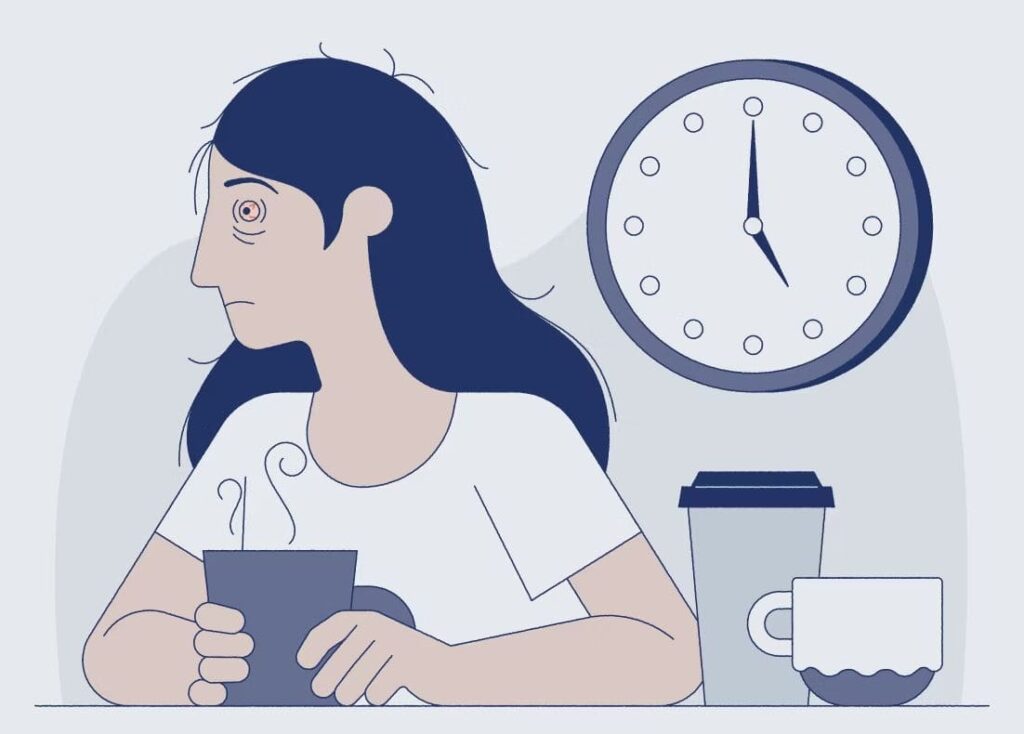Introduction
Sleep deprivation increases negative cognitive responses to stimuli while decreasing good feelings. Adequate sleep is essential for many brain and body functions that process everyday events and modulate emotions and behaviors. It aids in maintaining cognitive skills, and insufficient sleep time can make it difficult to cope with even modest stressors and impair one’s capacity to perceive the world accurately. Sleep deprivation can trigger the onset and deterioration of various mental health disorders, like depression, anxiety, and loss of attention.
Depression as a Consequence of Sleep Deprivation
Chronic exposure to a lack of sleep increases the risk of depression, which is more common in youth during the developmental stages since they are prone to activities like entertainment and studying that deny them night rests. For example, conducting significant prospective research of 3134 young people aged between eleven and seventeen discovered that sleep deprivation is linked with a nearly forty percent increased probability of reporting depressive disorders a year after that, regardless of their gender, age, relatives, or income despair (Conklin et al. 2). Sleep deprivation may interfere with the activity of the neurotransmitter serotonin and general functioning of the body which may bring about depression. Furthermore, insufficient sleep may impact the body’s stress system, affecting circadian rhythms and making individuals more vulnerable to depression.

Anxiety as a Consequence of Sleep Deprivation
Anxiety is one of the most severe side effects of sleep deprivation, and even a barely detectable lack of night rest is enough to raise its levels. According to a prospective study finding, a lack of enough sleep to a human being can serve a causative role in the development of anxiety disorders by elevating an individual’s anticipation of risk of harm (Zenses et al. 6). Sleep deprivation intensifies anxiety-related reactions in the amygdala and anterior insula areas of the brain associated with anxiety, which increases cortisol. As a result, sleep deprivation may decrease inhibitory regulation, which has been linked to increased manifestation of anxiety disorders in an individual.
Loss of Attention as a Consequence of Sleep Deprivation
Sleep deprivation impairs an individual’s attention span, learning, and processing abilities, slowing their cognitive processes and reaction time, and also reduces their capacity to follow instructions. Research indicates that attention, a component of ongoing goal-directed behavior, is one of the cognitive capacities that are most vulnerable to sleep deprivation, and due to increased nap pressure, execution of attentional activities decreases in a dose-dependent pattern with the length of accumulated awake time (Krause et al. 3). Attentional maintenance, in particular, turns out extremely unpredictable and inconsistent which leads to unsatisfactory completion of tasks. Moreover, inadequate sleep impairs the ability to appropriately integrate emotional information, particularly when learning new things, assessing an issue, or deciding due to reduced attention span.
Conclusion
Sleep deprivation can precipitate the beginning and worsening of mental health complications, like depression, anxiety, and attention deficit. Inadequate sleep raises negative cognitive responses to stimuli while lowering positive sentiments. Therefore, enough clinically accepted sleep time is critical for human mental health.
Works Cited
Conklin, Annalijn I., et al. “Chronic Sleep Deprivation and Gender-Specific Risk of Depression in Adolescents: A Prospective Population-Based Study.” BMC Public Health, vol. 18, no. 1, 2018, pp. 1–7, doi: 10.1186/s12889-018-5656-6.
Krause, Adam J., et al. “The Sleep-Deprived Human Brain.” Nature Reviews Neuroscience, vol. 18, no. 7, 2017, pp. 1–33, doi: 10.1038/nrn.2017.55.
Zenses, Ann‐Kathrin, et al. “Sleep Deprivation Increases Threat Beliefs in Human Fear Conditioning.” Journal of Sleep Research, vol. 29, no. 3, 2019, pp. 1–9, doi: 10.1111/jsr.12873.


